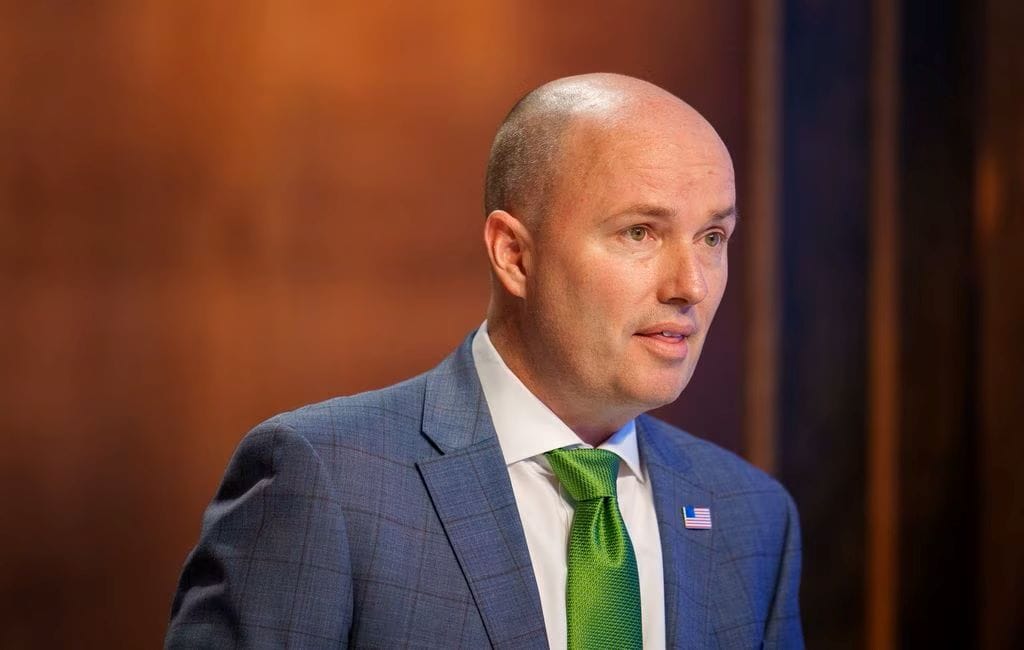Utah Gov. Preparing Social Media Suit, Twitter to Sue Meta Over Threads App, OpenAI Sued
Spencer Cox said Sunday on CBS’s Face the Nation he is preparing to sue over harm to kids.

July 10, 2023 — Utah Governor Spencer Cox said Sunday on CBS’s Face the Nation that he is getting ready to sue social media companies for harms against children in the state.
Cox said that the state will file lawsuits against any platform that is found to have harmed children and hold them accountable for their actions.
“We believe they’ve known about the dangers, some of this has been leaked out, Meta and others, very clear evidence that they knew the harms that their products were causing to kinds, and that they intentionally tried to hide that information,” said Cox.
He said that he is “looking forward” to the day in court on the issue. Cox signed legislation earlier this year that restricts minors in Utah from using social media platforms without parental permission. The bill would require social media platofrms to verify that users in the state are over 18 years in order to open an account.
“What we’re trying to do is give families more control over what is happening on social media,” he said. “In suicide, anxiety, depression, self-harm, there is a causal link there.”
This follows a bill introduced in the U.S. Senate this year that would prohibit anyone under the age of 13 from using various social media platforms and would require parental permission for those under 18.
Twitter to sue Meta’s Threads app
Twitter threatened Meta with a lawsuit in a letter sent on Wednesday that accused Meta of stealing trade secrets by hiring former Twitter employees for development of its new social media platform, Threads.
The letter claims that Meta hired former Twitter employees who “have improperly retained Twitter documents and electronic devices” and that Meta “deliberately” hired these former employees for the construction of Threads, which provides users with an alternative to Twitter.
“Twitter intends to strictly enforce its intellectual property rights and demands that Meta take immediate steps to stop using any Twitter trade secrets or other highly confidential information,” read the letter.
Twitter CEO Elon Musk tweeted on Thursday that “competition is fine, cheating is not,” in response to the launch of Threads.
Meta spokesperson Andy Stone wrote on Threads that “no one on the Threads engineering team is a former Twitter employee – that’s just not a thing.”
“The goal isn’t to replace Twitter,” said Instagram chief Adam Mosseri in a Threads post on Friday. “The goal is to create a public square for communities on Instagram that never really embraced Twitter and for communities on Twitter (and other platforms) that are interested in a less angry place for conversations, but not all of Twitter.”
Threads in reportedly now the “fasted growing app in history” with over 100 million users in just five days. Experts expect that it is the potential end of Twitter.
Comedian sues OpenAI for copyright infringement
Comedian and author Sarah Silverman joined authors Christopher Golden and Richard Kadrey in filing a lawsuit Friday against OpenAI, the creator of popular AI platform ChatGPT, for copyright infringement.
The lawsuit claims that ChatGPT was trained on copyrighted material without permission, which they claim were acquired from online databased on content that is not otherwise readily accessible.
In the suit, the plaintiffs offer evidence that when prompted, ChatGPT will summarize their books and infringing on their copyrights. It further says that the chatbot did not “reproduce any of the copyright management information plaintiffs included with their published works.”
In a separate lawsuit against Meta by the same firm, plaintiffs allege that their books were accessible in datasets Meta used to train its LLaMA model, an AI language model released in February by Meta AI.
Both claims state that the authors “did not consent to the use of their copyrighted books as training material” for AI models.
Joseph Saveri and Matthew Butterick of Joseph Saveri Law Firm, the firm representing the plaintiffs, said in a statement that they’ve “been hearing from writers, authors, and publishers who are concerned about [ChatGPT’s] uncanny ability to generate text similar to that found in copyrighted textual materials, including thousands of books.”








